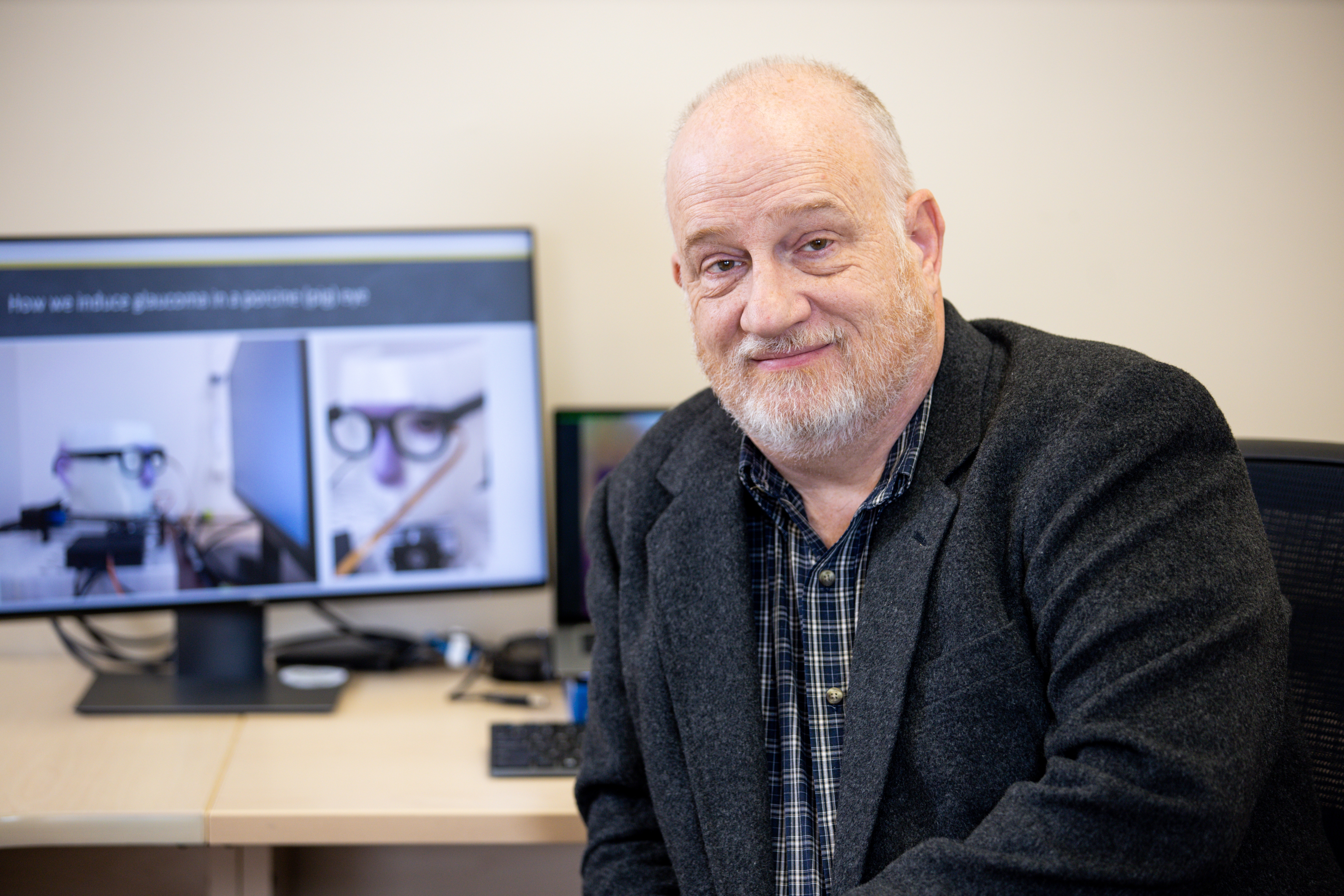Creed Jones: A Look Inside M.Eng.

Introducing Creed Jones
- Joined ECE June 2019
- Dean for graduate programs and professor of engineering, California Baptist University, 2013-2019
- Senior research scientist, Humana Inc., 2007-2013
- Associate professor of computer science, Seattle Pacific University, 2003-2008
- Ph.D., computer engineering, Virginia Tech, 2005
- M.S., electrical engineering, Oakland University, 1982
- B.S., electrical engineering, Oakland University, 1980
A Look Inside M.Eng.
Creed Jones, the recently appointed director of the Master’s of Engineering (M.Eng.) Program in Blacksburg, knows what it’s like to go back to school after years in industry. He had worked in computer vision for 18 years when his wife suggested he get a Ph.D..
He enrolled at Virginia Tech, moved across the country, and rented a small house in Blacksburg. “The first day of class, the professor had a little diagnostic quiz on linear algebra. I got a four out of twenty. I walked into my house and said ‘I have made such a mistake.’ My wife said, ‘It’ll be fine,’ and it was, but I know that feeling. The students that we want to attract, that’s what they’re going to experience—if not to the same degree that I did!”
The expanded M.Eng. program is part of a statewide effort to meet the growing industry demand for professionals with advanced knowledge, and is geared towards students who, like Jones, are returning to school to expand their skillset and open up new career paths. “In ECE, it’s harder than it was 20 years ago. If you go out with a B.S., you can do a lot, but more and more professional positions are going to require an advanced degree. This isn’t coming from HR, but the doing of the job will require it,” says Jones. “There are more multidisciplinary teams now, design cycles are shorter, they’re looking for productivity gains,” he continues. “These days, to not just survive, but thrive as a practicing engineer, will call on advanced skills."
The new M.Eng. programs Jones is overseeing are envisioned primarily as terminal degrees. “We have a path, the M.S. to Ph.D., if a student wants to be an academic or senior researcher,” but the goal is for potential employers to view M.Eng. graduates as a final product, and to populate tech and government positions in the greater Washington, D.C. area – and around the country – with a network of Virginia Tech graduates. “That benefits the VT brand, it serves the Commonwealth, it serves industry.” There is particular demand for engineers with expertise in cybersecurity and machine learning, explains Jones, “Someone has to fill that.”
His message to potential students: “Don’t be scared away. Through your professional career, you have learned how to get things done efficiently, how to work with people, how to understand information. That and your general maturity will benefit you far more than you think. If you’re on the fence, do it.”
To help expand the M.Eng. program and accommodate students based in Northern Virginia, Creed is also pioneering dual location pedagogy. He teaches Tuesdays in Blacksburg with students in Northern Virginia attending via Zoom, then Thursdays, he teaches in Northern Virginia and Blacksburg attends via Zoom. “It’s a pilot program to see how we can design courses so that faculty in Blacksburg could deliver content that students in Northern Virginia could take advantage of without professors wearing themselves out riding the bus every week.”
Keeping an Eye on Eye Pressure
While contributing to the reimagined M.Eng. program, Creed is also pursuing his own research. Before returning to Virginia Tech as a faculty member, Creed was Dean for Graduate Programs at California Baptist University, where his focus was on adding new graduate programs and degrees. With a colleague, he also started Global Biomedical, a company that is exploring the use of new eye imaging technology to detect glaucoma. This disease is typically caused by high pressure in the eye that damages the optic nerve. In the past, glaucoma patients got tested at most once a month. “Now we can track interocular pressure many times a day,” he explains. The company has two full-time employees and is moving towards regulatory approval for its products.
Although he keeps active in the business world, Creed is very glad that he returned to school and transitioned back into academia after his years in industry. “There is something to be said for job creation, but in academia the leverage factor is higher. I can influence a couple hundred students per semester,” he observes.


